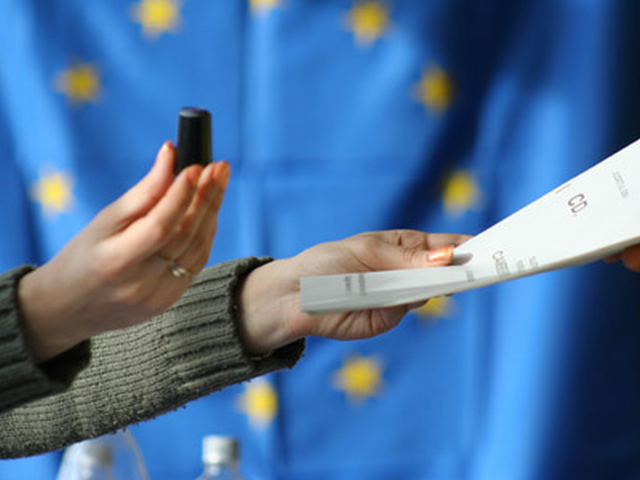Debates on a new election code
A special committee is analysing a proposal to introduce vote-by-mail and electronic voting

Valentin Țigău, 19.01.2015, 14:04
A special parliamentary committee has started consultations with representatives of all parliamentary parties on the amendment of the election laws. So far, the committee has analysed the basic principles underlying the election of the president, of senators and deputies, and of the local authorities. The ruling Social Democratic Party says it will propose, among others, the reduction in the number of MPs to around 300 for the Chamber of Deputies and 100 for the Senate.
The National Liberal Party in opposition will propose a mixed system for the election of MPs. The minister delegate for the relationship with Parliament, Eugen Nicolicea, said in an interview that he would propose the committee to carry out a census of the Romanian voters abroad, to improve the distribution of polling stations. “As soon as the law comes into force”, said Nicolicea, “the Romanian citizens living abroad will have six months to report their presence to the Romanian embassies in the respective countries. This will ensure that a sufficient number of polling stations will be created.”
The amendment of Romania’s three election laws is a priority for the new Parliament session which begins in February, said the president of the committee in charge with drafting the new election code, Valeriu Zgonea. The committee has already requested Parliament’s permanent bureaus to present it with all proposals referring to the election legislation and submit amendments to the existing bills by March 15th. Mr Zgonea says Romania needs an efficient and secure voting system.
Valeriu Zgonea: “All political parties agree that the new system should work without any logistical problems and provide all Romanian voters, wherever they are, with the opportunity to exercise their fundamental right to vote. We all agree that we must reduce the number of deputies and senators. We will look for the best solutions to achieve this before the legislative elections of 2016”.
The need for a fundamental change of the voting process abroad became clear during the recent presidential elections in November, when many citizens were unable to cast their votes due to deficiencies in the system and the bad management of the election process.






























